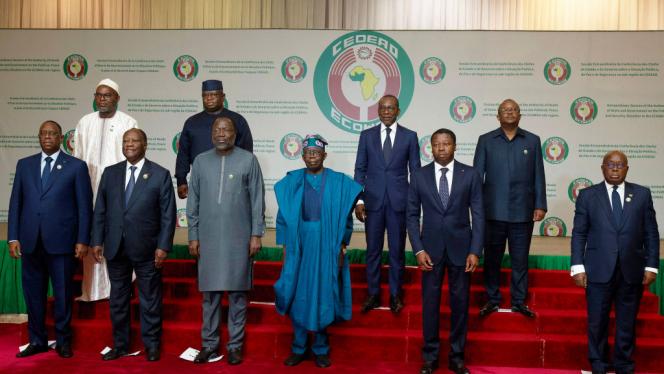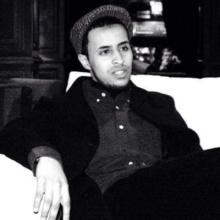Friday 22 November 2024
African leaders have grown more vocal in their criticisms of the west

African leaders have grown more vocal in their criticisms of the west, but will the verbal ripostes impact the orientation of their foreign policies?
Over the last few weeks several senior African politicians have been surprisingly candid in their criticisms of the west, vocalising a growing frustration across the continent about the asymmetries which characterise their ties with their European counterparts and to a lesser extent the US. Many of these political figures are seeking more equitable ties with their peers in the Global North and have been more unfiltered and forthright in expressing their concerns.
In early May, the president of the Democratic Republic of Congo, Félix Tshisekedi, appeared on French TV channel, La Chaîne Info (LCI), where he had a heated interaction with his interviewer, French journalist Darius Rochebin. Rochebin asked Tshisekedi whether the Russians and Chinese behave better than westerners on the continent in his opinion, to which Tshisekedi responded with a calm frankness. “Oh absolutely!” he said enthusiastically. He said that European leaders viewed Africans as “lesser beings”, operating within a framework of the “dominant” and “dominated”, calling on them to “readjust” their approaches to cooperation. Tshisekedi said he couldn’t understand “why you come to give us lessons, for example, on human rights.” Though he didn’t raise any issues that he thought undermined the entitlement of western leaders to raise those issues like Russian and Turkish officials often do, he said it was “astonishing” that his mindset persists.
In mid-May, the junta-installed Nigerien prime minister, Ali Lamine Zeine, spoke to the Washington Post, following a protracted deterioration in relations between Niamey and Washington in which Niger forced American troops to leave the country. The US has two major bases (Air Base 101 and Air Base 201) in Niger from which it carries out drone attacks against insurgent groups throughout the Sahel. Nigerien officials asked US troops to leave after an American delegation led by Secretary of State for African affairs Molly Phee arrived mid-March without informing the ruling military authorities.
Abdourahamane Tchiani, the leader of the new government called the National Council for Safeguarding the Homeland, blasted the Americans for being “disrespectful”, denouncing the “condescending attitude accompanied by the threat of retaliation from the head of the American delegation towards the Nigerien government and people.”
When Lamine spoke to the Post he channeled these frustrations lashing out at the Americans for treating Niger, a former stalwart ally in the so-called War on Terror, differently from Ukraine and Israel, for whom Washington is depicted as having pulled out all the stops. Lamine said that “Americans stayed on our soil, doing nothing while the terrorists killed people and burned towns.” He added: “It is not a sign of friendship to come on our soil but let the terrorists attack us. We have seen what the United States will do to defend its allies, because we have seen Ukraine and Israel.”
Like Tshisekedi, Lamine said Niamey had other friends who welcomed it with “open arms” like Russia, with whom it has developed close military ties, Turkey with which Niger has economic and military ties and the UAE whose presence is less pronounced, but which Lamine mentioned.
Tanzania’s foreign minister, January Makamba, appeared on Russia Today on Africa Day, where he commented on developments in Niger, saying France was kicked out because, alongside Americans, it was attempting to make a “last second dash into Africa.” Makamba echoed his colleagues elsewhere across the continent calling on western capitals to treat their African colleagues with respect and seek mutually beneficial ties. He said Africans should seek out the right types of partnerships, based on an understanding of their interests and shouldn’t be forced to “choose this one particular partner or another.” Makamba said Africans would struggle to realise their economic and political goals without unity.
Whilst Tanzania, the DRC and Niger aren’t necessarily the west’s principle partners on the continent, and have relations of varying intensity with western capitals, countries much closer to their west have also spoken out in interesting ways. Togo’s foreign minister, Robert Dussey, also commented on Niger’s decision to expel the Americans at the Global Security Forum in Doha also at the end of May. He stressed that he wasn’t defending the military mini-lateral alliance that had emerged between Niger, Mali and Burkina Faso, telling Peter Pham, a former state department official on Africa, that westerners needed to “review your approach.” “Sometimes, you stay in Washington, Paris, Brussels, maybe here in Doha, and you decide for the African leaders and African people. This is not correct,” he added. Dussey, also an accomplished philosophy scholar added that the world today wasn’t the same as that which existed after WWII, and that Africans were greatly frustrated by the attempts to have decisions imposed on them without an appreciation for the circumstances or their input.
“The approach is not a domination approach,” he said, “there is a condescending attitude, sometimes it is arrogance.” Appearing to explain the decision by the juntas to send the French and the Americans packing he said, “we don’t need paternalism anymore”: “we have the political maturity, after 60 years of independence, to decide for ourselves, to decide for our people. I think it is very important to take it into your mind.”
Kenyan president William Ruto – the “inscrutable” – broke with this trend in some ways, heading to Washington where he was granted the red carpet treatment in the first visit by an African head of state during the Biden administration (his term ends this year mind you). Ruto managed to get his country “major non-Nato ally” status, the first for a sub-Saharan African country, and threw his geopolitical lot in with the west becoming Washington’s regional “anchor state” but even he took umbrage at a pointed question by a CNN interviewer who thought he was prepared to trigger a diplomatic scandal live on TV. The interviewer asked in what he called “straight forward” language whether Ruto preferred western investment or Chinese investment. It should be noted that as recently as last October Kenya expressed its interest in security further Chinese investment to further improve its infrastructure, IT and agriculture sector, but Ruto tackled the question with skill, recalling a statement made by Kwame Nkrumah: “we face neither east or nor west; we face forward.” Reacting to the clip on X, formerly Twitter, Melissa Chemam, a journalist at RFI posted: “Such a naive way of framing the question... Like Ruto would pick a side live on CNN…” Somali academic and professor at Mogadishu City University, Afyare Elmi said Ruto gave an “excellent answer.”
In Senegal, this sentiment translated into what has widely been perceived as an anticolonial vote with the election of Bassirou Diomaye Faye in March this year. Faye is a disciple of outspoken critic of France, Ousmane Sonko, who was barred from running for the presidency but has now been appointed prime minister. Ayisha Osori, a Nigerian lawyer and director of the Open Societies Foundation likened Faye election to a “people’s coup.” Late in May, Sonko predictably launched a broadside at France à la Niger, asking why there were French bases still in the country. “More than 60 years after our independence ... We must question the reasons why the French army for example still benefits from several military bases in our country and the impact of this presence on our national sovereignty and our strategic autonomy,” Sonko said at a press conference with the French left-wing politician Jean-Luc Mélenchon. At the end of the month Faye visited Mali and Burkina Faso to strengthen “historic ties of good neighbourly relationship.”
The Russian foreign minister has exploited this strong vein in African politics during his Africa tour regularly lambasting the west and smuggling in key messages which advance the Kremlin’s foreign policy goals. In the Republic of Congo, he said president Sassou Nguesso was not like other world leaders and had shown “understanding” that “Ukraine is an instrument of the West, whose objective is to inflict a strategic defeat on Russia.” Late last year Lavrov also toured North Africa, where he delivered similar messages to publics nursing grievances against the west.
Nowhere have these fissures been clearer than on the differing approaches to Israel’s war on Gaza. Though European countries haven’t acted like a monolith and have adjusted their policies through the course of the war (namely Spain, Ireland, Norway and Slovenia), Germany, the UK and the US have been unrepentant in their support for Israel despite the genocidal rhetoric of its officials and the mass killing of civilians in Gaza. South Africa has led a high-profile legal action at the International Court of Justice and has been sharp in its criticism due to parallels many South Africans see between their experiences and those of Palestinians.
In an interview with Geeska, Ebrahim Rasool, a former South African ambassador to the US said: “In Palestine there are walls. We have not been carpet bombed. We have had mass jailings and detentions without trial, but apartheid South Africa would at least uphold the facade of being a serious state. What I’m saying is that it is much, much worse.” Mid-May Egypt joined South Africa’s genocide case against Israel, a major move for a country that is heavily dependent on US support for its military regime and has a delicate peace treaty with Israel. The African Union also warmly embraced the then-Palestinian prime minister, Mohammad Shtayyeh, at its 37th summit in Addis Ababa where AU commission chair, Moussa Faki Mahamat, declared the institutions “unwavering” support for the Palestinian cause.
Ovigwe Eguegu, geopolitical analyst and policy analyst at Development Reimagined, says the big question here is whether these criticisms are an “indication of an on-going pivot we’re seeing across the continent” and if these leaders are likely to follow up these statements with foreign policy actions. Some capitals have put their money where their mouths are like the military leaders of the Sahel whereas others have talked a good game but have been more lukewarm in the follow through.









